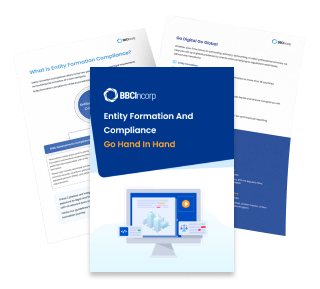
Compliance is a high-priority aspect for any business around the world. However, meeting compliance requirements is not an easy task for law firms due to the vast amount of data they hold.
Firms can rack up huge costs due to compliance, yet they are obliged to stay compliant with a host of regulations on the federal, state, and international levels.
While it is mandatory for law firms and those who offer professional services to maintain compliance, the process and protocols for this aspect of their jobs can be quite challenging and complex.
What kind of compliance challenges are out there for law firms?
The global market
According to Statista, legal services are now going global. There have been more and more “global lawyers” who operate internationally, extending services to many jurisdictions aside from the one in which they were trained and qualified.
Major clients often require legal representation in multiple jurisdictions, which can be a serious compliance obstacle for global lawyers.
The more jurisdictions you operate in, the more different sets of regulations you have to keep pace with, leading to great compliance management challenges.
In 2020 alone, ISO published 1,627 new standards on top of their already massive number of 24,130 international standards that regulate all aspects of technology and manufacturing. To benefit from globalization, it will take law firms considerable efforts in risk and compliance.
Limited resources
Compliance regulations are always evolving, expanding, and becoming more complicated by the year, involving an array of global standards, such as:
- the General Data Protection Regulation (GDPR),
- the Anti Money Laundering and Counter-Terrorist Financing (AML/CTF), and
- the Foreign Account Tax Compliance Act (FATCA)
The sheer amount of compliance regulations can be overwhelming for a compliance team with limited resources. And while having a dedicated compliance team is something larger legal firms commonly do, smaller firms can only consider that a luxury.
When firms do not have the budget to hire dedicated staff members for risk and compliance tasks, compliance can become a secondary focus, leaving them susceptible to compliance risks.
Client expectations
Over the past few years, client expectations have been shaped by the increasing range of technology available on a consumer level.
People can now do things such as banking, grocery shopping, ordering books, and performing other daily routines online through their smartphones. In 2021, clients will expect the same kind of seamless services from their law firms.
Life’s digitalization is forcing firms to reassess how they run their businesses. If lawyers cannot evolve their services quickly enough with time, they will be left behind as it is now a point where clients expect them to adapt to the constant change of the digital world.
How can law firms tackle compliance challenges effectively?
- Review current practices and processes
Law firms must take an in-depth look at the compliance processes they have in place, identifying any potential risks and how these risks can be mitigated.
For instance, legal firms should consider trends in the legal consulting industry such as data security to ensure that any data they store is securely safeguarded in compliance with relevant international standards.
They should also check for any areas of compliance weakness and address these areas as quickly as possible.
- Outsource the compliance process
Firms often outsource to save money from having to train and maintain in-house dedicated compliance staff, especially one that can keep pace with the constant regulatory changes. This cost-saving can go up to 27.2% according to NAPEO.
By transferring risk and compliance functions to a professional service firm, law firms can be assured that the tasks will be handled by skilled and experienced officers who know what they are doing.
Outsourcing compliance process also prevents any disruptions, as well as any turnover costs that occur by relying on several key staff members who could leave at any time.
Quick guide
Entity Formation Compliance
Understand global compliance issues to ensure risk-free entity formation journey for clients.


Conclusion
Understanding the core compliance challenges may help legal firms minimize compliance risks and prevent oversights in today’s fast-paced, globalized, and digitalized environment.
If you have any concerns or questions regarding compliance for your law firms, don’t hesitate to contact us via service@bbcincorp.com or chat with our friendly consultant for practical advice.
Easing your compliance challenges with BBCIncorp
We help firms set up global presence while complying with regulations seamlessly, without additional cost or unwanted headaches.
- Global entity formation
We optimize the entire entity formation process in more than 18 countries worldwide. Whether it’s for you or your clients, we make entity formation fast, simple, and worry-free.
- Due-diligence for compliance
We streamline the compliance process with automated tools, comprehensive due diligence checks, and ongoing monitoring, ensuring your compliance from start to finish.
- Accounting and Auditing
Our qualified accounting service helps you handle tax and financial compliance with ease. You can rest assured that your reporting is accurate and up to date.
Disclaimer: While BBCIncorp strives to make the information on this website as timely and accurate as possible, the information itself is for reference purposes only. You should not substitute the information provided in this article for competent legal advice. Feel free to contact BBCIncorp’s customer services for advice on your specific cases.
Get helpful tips and info from our newsletter!
Stay in the know and be empowered with our strategic how-tos, resources, and guidelines.


